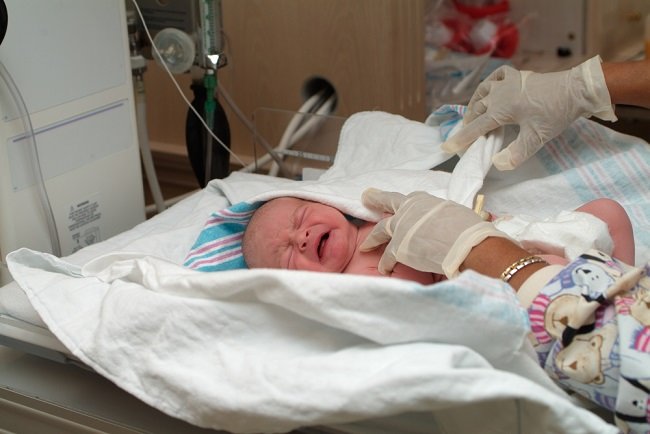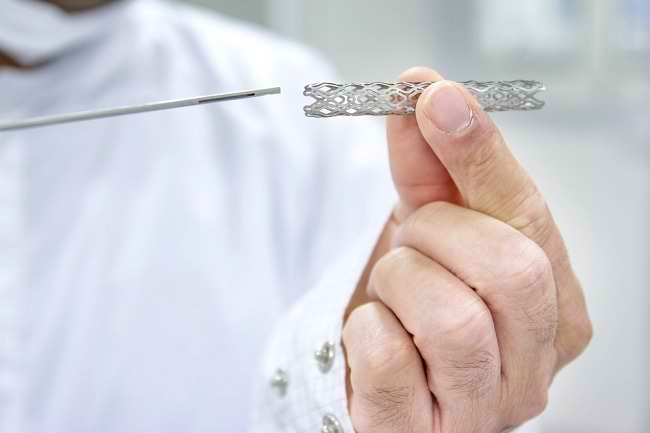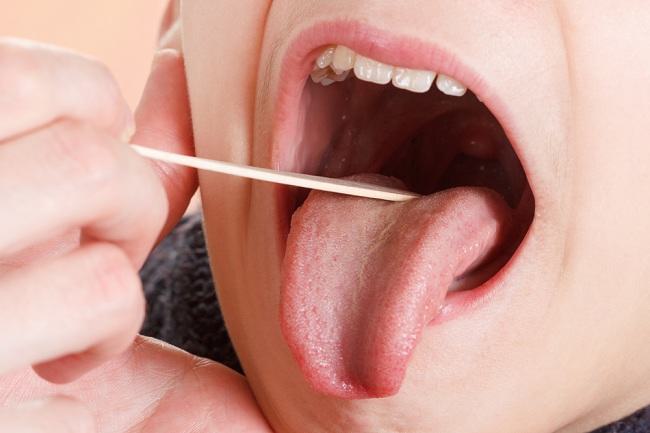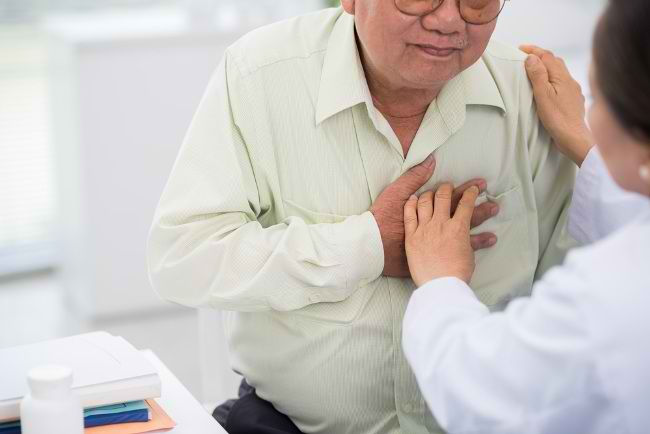Aspiration pneumonia is an infection and inflammation of the lungs due to entry of foreign bodies into the lungslungs. Symptoms that often appear when experiencing aspiration pneumonia are coughing up phlegm, shortness of breath, and chest pain.
Aspiration pneumonia is a complication of pulmonary aspiration. Pulmonary aspiration is a condition when food or other foreign substances accidentally enter the lungs and cannot be expelled. Furthermore, this condition triggers bacterial infection and inflammation of the lungs.

Causes of Aspiration Pneumonia
Aspiration pneumonia is caused by a bacterial infection in the lungs that enters through the respiratory tract. These bacteria can enter with food, stomach acid, or saliva.
Some conditions that can increase a person's risk of developing aspiration pneumonia are:
- Impaired consciousness, for example from drug and alcohol abuse, drug use, stroke, head injury, epilepsy or dementia
- Swallowing disorders, for example due to esophageal cancer, throat cancer, sores on the esophagus, multiple sclerosis, Parkinson's disease, or myasthenia gravis
- Other conditions, such as prolonged lying down due to illness, COPD, or use of a nasogastric tube
Symptoms of Aspiration Pneumonia
Aspiration pneumonia can happen to anyone, including children. The main symptom of aspiration pneumonia is a cough with phlegm. The patient's phlegm can be greenish in color, accompanied by blood, and has a bad smell. In addition, other symptoms can also appear due to respiratory disorders and bacterial infections.
In general, symptoms of aspiration pneumonia include:
- Cough with phlegm
- Chest pain
- Hard to breathe
- wheezing (wheezing)
- Bad breath
- Easy body limp
- Excessive sweating
- Difficult to swallow
- Fever
- Blue skin (cyanosis)
Patients with aspiration pneumonia may also experience non-specific symptoms, such as dizziness, nausea, vomiting, or weight loss.
When to go to the doctor
Immediately see a doctor if you or your child experience the above symptoms, especially if you have previously choked while eating or drinking. This condition is dangerous and must be treated immediately, especially in children under the age of 2 years and the elderly over 65 years.
Check with your doctor if you have a cough accompanied by blood or greenish phlegm. Do not delay to see a doctor if these symptoms are accompanied by a high fever.
Aspiration Pneumonia Diagnosis
The doctor will ask about the patient's symptoms and medical history. After that, the doctor will perform a physical examination, one of which is by using a stethoscope to listen for abnormal sounds in the lungs.
To confirm the diagnosis, the doctor will perform further examinations in the form of:
- Blood test, Includes complete blood count, blood gas analysis, blood culture, electrolyte level count, and kidney function tests
- Sputum culture (sputum), to detect the presence of bacteria that cause infection
- X-ray or CT scan of the chest, to see a clearer picture of the lungs
- Bronchoscopy, to examine the throat to the lower airways
Aspiration Pneumonia Treatment
Treatment of aspiration pneumonia depends on its severity. Patients can be treated independently at home if symptoms are mild. If the condition is severe, the patient will need to be hospitalized.
Some of the methods for treating aspiration pneumonia are:
Administration of drugs
The types of drugs given include:
- Antibiotics in the form of oral or injectable drugs, to kill bacteria
- Corticosteroids, to relieve swelling in the lungs
- Bronchodilators, to clear the airways
Support therapy
Supportive therapy is given if aspiration pneumonia causes difficulty breathing. Types of therapy include:
- Giving oxygen and breathing apparatus (ventilator)
- Removal of foreign bodies from the respiratory tract through bronchoscopy procedures
- Physiotherapy, to help remove phlegm from the lungs and overcome difficulty swallowing
If the patient has difficulty swallowing after undergoing the above treatment, the doctor will insert a feeding tube (nasogastric tube).
Complications of Aspiration Pneumonia
Untreated aspiration pneumonia can develop into more serious conditions, such as:
- Lung abscess
- Bronchiectasis
- Spread of infection to other organs
- Infection spreads to the bloodstream (bacteremia)
- Shock
- Breathing failure
- Death
Prevention of Aspiration Pneumonia
There are several things you can do to prevent aspiration pneumonia, including:
- Avoid overeating or drinking. Try to eat little by little and drink slowly. Do not eat or drink while talking.
- Always eat and drink in a sitting position. If you are sick and can only lie down, position your head higher every time you eat and drink.
- Take medication as directed by a doctor, including over-the-counter drugs that have a drowsy effect.
- Quit smoking if you smoke.









